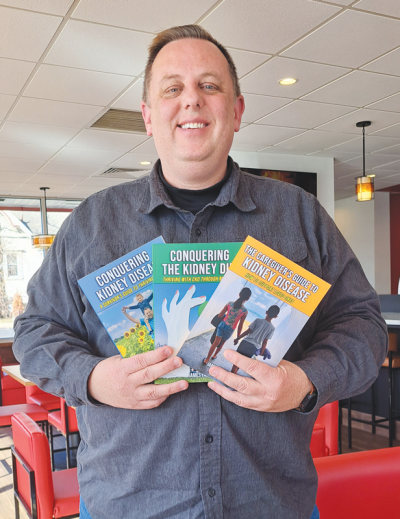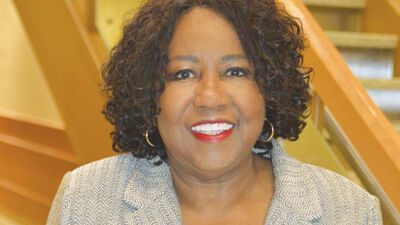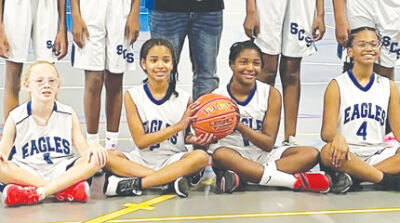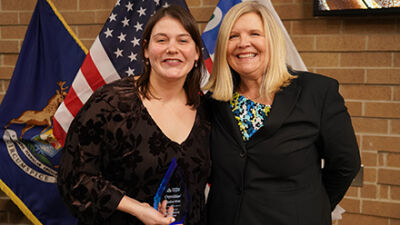
James Fabin, of Farmington, a local author who lives with chronic kidney disease, shows off the three books he has written on the subject.
Photo by Charity Meier
FARMINGTON — After being diagnosed with kidney failure, a Farmington man has made it his life mission to advocate for awareness, prevention and possibly a cure for chronic kidney disease.
In the fall of 2018, James Fabin was told he was on death’s door and needed to go on immediate dialysis for CKD or his wife would be picking out his casket within 45 days.
“No one wants to die. We don’t think about dying. Even though we know we’re not immortal, we think we are. We don’t think about what’s going to happen later,” said Fabin.
Despite dire consequences Fabin, a young father of two, chose to forego dialysis. Instead he spent his time in the intensive care unit conducting research on the various treatments for the disease around the world.
“We use dialysis more than any other country, but we have some of the worst results,” Fabin said.
According to the National Kidney Foundation of Michigan there are just over 16,000 people on dialysis in the state. It is not a cure for kidney failure but a temporary means to stay alive until a patient receives a kidney transplant. According to Fabin, patients with kidney disease often wait 10 years for a transplant. Those who do receive a transplant may get two to seven years of a normal life, but some might reject the transplant and remain on dialysis.
In Michigan there are just over 2,000 people waiting for a kidney transplant as of February, according to the foundation, which is working to let people know how they can become a living donor. The kidney is one of few organs someone can donate while they are still living.
Health care costs have been completely covered for people with kidney failure who go on to dialysis since 1979. It is the only universal coverage in the United States, and Fabin believes people are referred to dialysis too soon because of that. He said people with kidney disease are seeing much better results in southern Europe, where they focus on diet, and blood sugar control. According to Fabin this helps people to live longer and still do things such as continue to work and travel.
Fabin said he went from someone who had never even heard of a nephrologist or a renal dietitian to someone who researches the topic. He said he started by calling doctors and specialists around the world from his ICU bed, and he continued to document his experiences with YouTube videos at every stage of his recovery, including various medications and treatments he was using, what worked and what didn’t.
“It became my purpose in life to spread knowledge of kidney disease and what people can do to prevent ending up on dialysis,” said Fabin, who has penned four books on the subject and is working on his fourth. He holds weekly podcasts on his channel, DadviceTV, with many prominent figures in the realm of kidney disease.
Fabin has never been on dialysis, and was able to get his kidney function numbers from the single digits up as high as a 33, and now remains in the mid 20s thanks to drastically altering and monitoring his diet. He said those numbers go down a point a year naturally after age 50, and he hopes at that rate that he will have at least 10 years before he is in the danger zone again, and that possibly by that time there will have been some advancements in the treatment of the disease. According to Fabin scientists are working on an artificial kidney that is tentatively scheduled to be released in 2030.
“Here’s what worked for me. You can’t really get (kidney function numbers up). Your kidneys will never get better, but you can ask less of them,” said Fabin.
“Certainly diet is a big part of prevention for the disease itself. That’s one of the things we focus on at the foundation is prevention,” said Joyce Williams, a communications specialist for the National Kidney Foundation of Michigan.
Jen Hernandez, a renal dietitian and the founder of Plant Powered Kidneys, said diet can play a major role in kidney health.
“Diet definitely can play a really big factor as with many health concerns — the more proactive you can be, the more opportunities you can have,” said Hernandez.
Hernandez said that the American diet is typically loaded with sodium. She said the recommended sodium intake is 2,300 milligrams or fewer per day. One thing people can do to protect their kidney health/function is to maintain a low sodium diet and aim to stick around the recommended number.
“Aiming for that heart healthy amount of sodium in a day can be really, really helpful, and the reason is because it helps to prevent higher blood pressure, which is one of the top causes of kidney disease. So, basically, reducing the risk of that precursor for kidney disease can be great. So that is one of the No. 1 things that I recommend,” she said.
She also recommends getting enough potassium. According to Hernandez 98% of Americans don’t get enough potassium in their diet. She said people should aim to consume at least 2,600 milligrams of potassium per day or more. She said the guidelines show that up to 4,700-plus milligrams of potassium can be helpful as long as someone doesn’t have a medically ordered low potassium diet. She said the right amount of potassium helps with cardiovascular health and enables the body to do the “tons” of things that it does. Hernandez said that in order to get enough potassium, people need to make sure they are consuming a lot of fruits and vegetables.
“Eating enough fruits and vegetables is always going to be a big win in order to fight against so many different health conditions, including kidney disease,” said Hernandez.
Good sources of potassium include potatoes and tomatoes, she said.
According to Hernandez, women age 19 or older should consume 2,600 milligrams of potassium per day, and men 19 and older should consume 3,400 milligrams.
She said that in order to retain kidney function people with the disease often need to follow a low-protein diet.
“So having less protein in the diet can be kidney protective, but as a dietitian I’m always looking at if we are going to be reducing something, what are we adding to it? What are we adding to the plate? So that’s when we look back into getting plenty of fruits and vegetables, getting healthy fats, getting whole grains into the diet to make sure that we are getting enough nutrients,” she said. “One of the biggest concerns that I have with many of my kidney patients is that they are not eating enough, because there is so much fear around food, and that’s because a lot of information people can find online is avoiding nutrients. And these nutrients can include sodium, but also potassium, phosphorus, protein, sometimes calcium, because the kidneys play such an important role in managing our mineral balance, our nutritional balance. So that’s when people automatically become afraid of it if they have kidney issues.”
She said the diet for each patient is individualized, and not everyone needs to avoid all those things. She spends a lot of time getting her patients to eat more of some of those nutrients to make sure they are not becoming malnourished, which can lead to other health issues.
One thing that Fabin said he eliminated from his diet is colored soda as it has inorganic phosphorus in it as a preservative, which is hard on the kidneys.
Williams stressed the importance of drinking enough water.
“You’re helping your body by getting rid of the toxins. You’re helping your kidneys get rid of them. You’re, again, taking some of that burden off your kidneys by giving them lots of fluid to flush out the normal toxins that your body makes every day. So definitely water,” said Williams.
Hernandez said those who are diagnosed early have a lot of opportunities to make a lot of diet, nutrition and lifestyle changes to protect their kidneys.
“It can be a very very helpful tool, nutrition can, to help somebody protect their kidney function or even for somebody on dialysis,” said Hernandez. “There’s absolutely something that can be done in any stage of (CKD). I have yet to come across a patient that there is no opportunity to be made, no change or improvement that can be seen from a nutritional perspective.”
However, Williams said many people don’t even know they have CKD until it’s too late as it is a silent killer, and people with the disease don’t have symptoms right away. She said that 37 million Americans have CKD, and in Michigan, 1 million adults are affected.
“So it’s a big issue, and it definitely keeps us on our toes, as far as what we can do to help people who already have the disease but also to try and help more people from getting it,” she said.
Williams said they are striving to get more people tested because 1 in 3 adults in Michigan is at risk. A blood test or a urine test can be used, but they aren’t part of a routine checkup and bloodwork.
She said people should ask for the tests.
“It’s important to ask for both of those (blood and urine tests) because they tell you different things,” said Williams.
She said the urine test checks for protein in the urine. If you are spilling protein in your urine that means your kidneys are not doing their job completely.
The blood test looks for the glomaria filtration rate, which is the rate at which the kidneys filter blood.
A quiz to check for risks can be found at NKFM.org. Three major risk factors are obesity, diabetes and high blood pressure
Hernandez said that the labs and energy level of patients who have chosen to make dietary changes are dramatically different from those who chose not to improve their diet. She said she sees people get better all the time. She said she has had some students in her nutrition class go from a GFR in the 50s to back into the 80s with diet changes. She has also had people go from stage 5 to stage 3, which she said is from the point of talking about dialysis to the point of doctors saying they are stable. Some people have even been discharged by their nephrology doctors after making diet changes, she said.
Plant-Powered Kidneys offers both one on one instruction and a nutrition course for early stages of CKD online.
“It’s not anything magical. It’s just what we tell people with heart disease, what we tell people with diabetes — healthy diet and physical activity. If people could just get out and walk every day, that helps your body immensely and makes a big difference,” said Williams.
For more information, visit NKFM.org. For information on courses offered by Hernandez, go to plantpoweredkidneys.com. To listen to Fabin’s podcasts or purchase his books, go to dadvicetv.com.
 Publication select ▼
Publication select ▼

























